We love to see businesses getting it right when it comes to mental health.
As the world’s leading manufacturers when it comes to tires and rubber, Bridgestone are also leading the way with employee wellbeing. In 2021, the team at Bridgestone Australia participated in Mental Health First Aid training and mental health induction courses facilitated by Mentally Well Workplaces.
We’ve all seen the impact a global pandemic can have on mental health, with an increased number of Australians reporting psychological distress as a result of COVID-19. Yet, mental health has been impacted by more than this public health crisis, and it’s far longer that mental health issues have been present in the workplace. This ongoing mental health crisis presents a major challenge for organisations, both because employers have a duty of care and also because failing to address mental health issues in the workplace comes at a cost to both companies and their people.
So, how can we ensure that Australian employees remain mentally well and are able to fulfil their potential at work? We look to companies who are leading the way when it comes to talking about all forms of mental health issues. What to do, how to do it and the benefits you can expect.

For Kim, in the Bridgestone HR department, the mental health training provided by MWW not only enabled her to better support her staff, but also enhanced her awareness of mental illnesses.
“I went into the course aiming to gain some further skills in supporting managers with their staff and to be able to better support staff directly. This I gained, but I also gained a much better understanding of how people feel when experiencing mental health illness/issues.”
Investing in Mental Health First Aid training means that Bridgestone team members, like Kim, are confident in
recognising the signs of mental illness, are able to have conversations about self-harm, trauma or substance abuse and, importantly, can support colleagues in finding further, professional assistance.
“I gained the confidence to have those uncomfortable conversations, ask the right questions and provide the right support.
Not long after the course completed, I had one of those conversations. I didn’t get it all right, but certainly felt I managed the conversation more appropriately than if I hadn’t have done the training,” says Kim.
While many of us will be familiar with mental health conditions and maybe even how to ask ‘are you okay?’, the best mental health training will provide tools that grow and develop on a manager’s pre-existing skillset. “I really enjoyed the course and learnt a lot about mental health I didn’t know,” says one service manager.
“This course has shown me options on how and where to get help from but also be aware of situations before they might escalate. Now I can use these skills to help others.”
It’s not unusual that managers or leaders might feel apprehensive when it comes to mental health training. Considering the number of ‘quick fix’ options or Band-Aid solutions offered by wellness programs and on-site perks (think weekly office yoga, meditation apps and free snack offerings), we don’t blame them. We’re also less-than-convinced by these wellness benefits that aim to compensate for workplace stress while doing little to address the overarching mental health crisis. That’s where corporations like Bridgestone get it right. By investing in mental health education, Bridgestone is demonstrating a commitment to their people, a willingness to adapt to meet the needs of employees and better support staff at all levels.
Craig, assistant manager at Bridgestone, shared an uncertainty over how beneficial mental health training would be for his team.
“I was unsure about what the course would be and thought we would all just sit around and watch some slides and have someone talk about topics of mental health.”
The course exceeded his expectations, and Craig was surprised by the actionability of what was delivered. “It was highly engaging and really highlighted that mental health is not by choice- it is an illness!”
He observed changes in his own behaviour and approach to mental health while at work. “[The course] has re shaped and changed nearly every conversation and observation I have on a daily basis with staff. Sometimes just asking ‘how are you going?’ can change someone’s day.”
When leaders and managers understand what to look for, it means they are better able to assist team members who may be suffering, and build on the trust that cultivates higher employee engagement and increased performance. By partaking in mental health training, managers gain the skills, language and capabilities to both offer and request support. For Craig, learning about mental health conditions and how they may present in the workplace had clear benefits for both himself and his team.
“I would recommend this course to anyone that has staff report to them. It’s a real eye opener; knowledge is power, and empathy is something we can all learn to show more of.”
The readiness of Bridgestone staff members to create a workplace culture which prioritises mental health is testament to the increasing importance placed on mental wellbeing and psychological safety by corporations across all industries. If you want to join Bridgestone in becoming a mentally well workplace, consider investing in mental health training. We promise you, it’s worth it for both you and your people. Get in touch to see how Mentally Well Workplaces can help, or follow Bridgestone in training staff in MHFA training and our online induction courses.





























